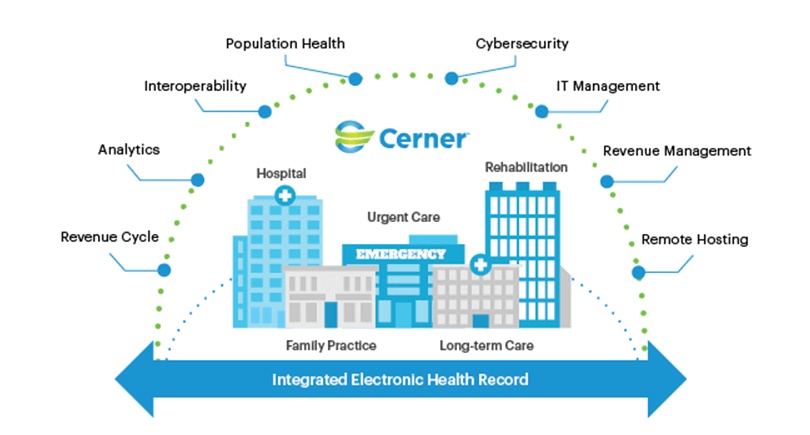In the realm of healthcare, Cerner integration stands out as a crucial component for organizations of various sizes and specialties. The cloud-based EHR software solution, known for its versatility, is extensively utilized to streamline administrative processes, allowing healthcare providers to prioritize the delivery of top-notch patient care.
How do Cerner Systems Empower Various Medical Disciplines?
Cerner systems, spanning across more than 40 medical disciplines, play a key role in task automation and record-keeping. This functionality empowers medical staff, enabling them to concentrate more on providing high-quality care to patients. Physicians, leveraging Cerner integration, find themselves capable of seeing more patients without compromising the standard of service, consequently enhancing overall revenue.
What Benefits Does Cerner EHR Integration Bring to Enhance Patient Experience?
Easy Access to Information: Patients can conveniently access and update their health information, view lab results, and communicate with clinicians.
Time Savings for Patients and Providers: User-friendly interface simplifies processes and saves valuable time for both patients & healthcare providers.
Personalized Care: The patient portal enables a more personalized and efficient healthcare experience, allowing active participation in care.
Flexibility and Convenience: Cerner EHR Integration offers flexible system access, enhancing convenience for both patients and healthcare practitioners.
Efficiency and Accuracy: Automation streamlines processes, improving overall efficiency and accuracy in healthcare operations for better patient outcomes.
What is the Role of Cerner Software Solutions in Promoting Interoperability and Automation?
Cerner software solutions are designed with interoperability in mind, supporting standards such as HL7 and FHIR to ensure seamless compatibility. This integration automates the ordering of tests, drugs, and healthcare services, streamlining order administration. The connectivity with medical devices ensures real-time monitoring and alerts, not only improving accuracy but also enhancing overall efficiency in healthcare operations.
How Does Cerner EHR Provide Patient-Centric Advancements?
The patient user portal within Cerner EHR emerges as a significant advancement, offering patients the ability to update information, access lab results, and communicate with clinicians before visits. This not only saves time for patients but also facilitates a more efficient and personalized healthcare experience. The user-friendly interface further simplifies the reporting and reviewing of patient data, contributing to a holistic approach to healthcare.
What Security Measures Are Implemented in Cerner EMR Integration to Uphold Confidentiality Standards?
Cerner prioritizes the security of patient health records, maintaining a robust information security program aligned with international and national data protection standards. Cerner EMR integration ensures that patient data remains confidential and inaccessible to unauthorized individuals, setting the highest standards for data security in healthcare.
What Challenges Arise in the Implementation of Cerner Integrations?
Data Migration Complexity: Migrating patient data from older systems to Cerner's EHR requires meticulous cleaning, uniformity, and alignment with the new system's structure.
Coordination Challenges: Coordinating Cerner EHR integration with other healthcare components, such as labs and pharmacies, demands efficient coordination and technical expertise.
Interoperability Standards: Ensuring adherence to interoperability standards like HL7 and FHIR during integration to enable smooth data sharing.
Stakeholder Support: Effectively managing changes and gaining support from stakeholders, including clinicians, administrators, and staff, is crucial for successful implementation.
Conclusion:
Cerner integration significantly contributes to healthcare interoperability, ensuring HIPAA compliance for software development while concurrently boosting company productivity. The streamlined processes offered by Cerner Solutions accelerate interoperability among various healthcare applications from different creators, ultimately fostering an environment conducive to enhanced patient care and improved operational efficiency.


No comments yet